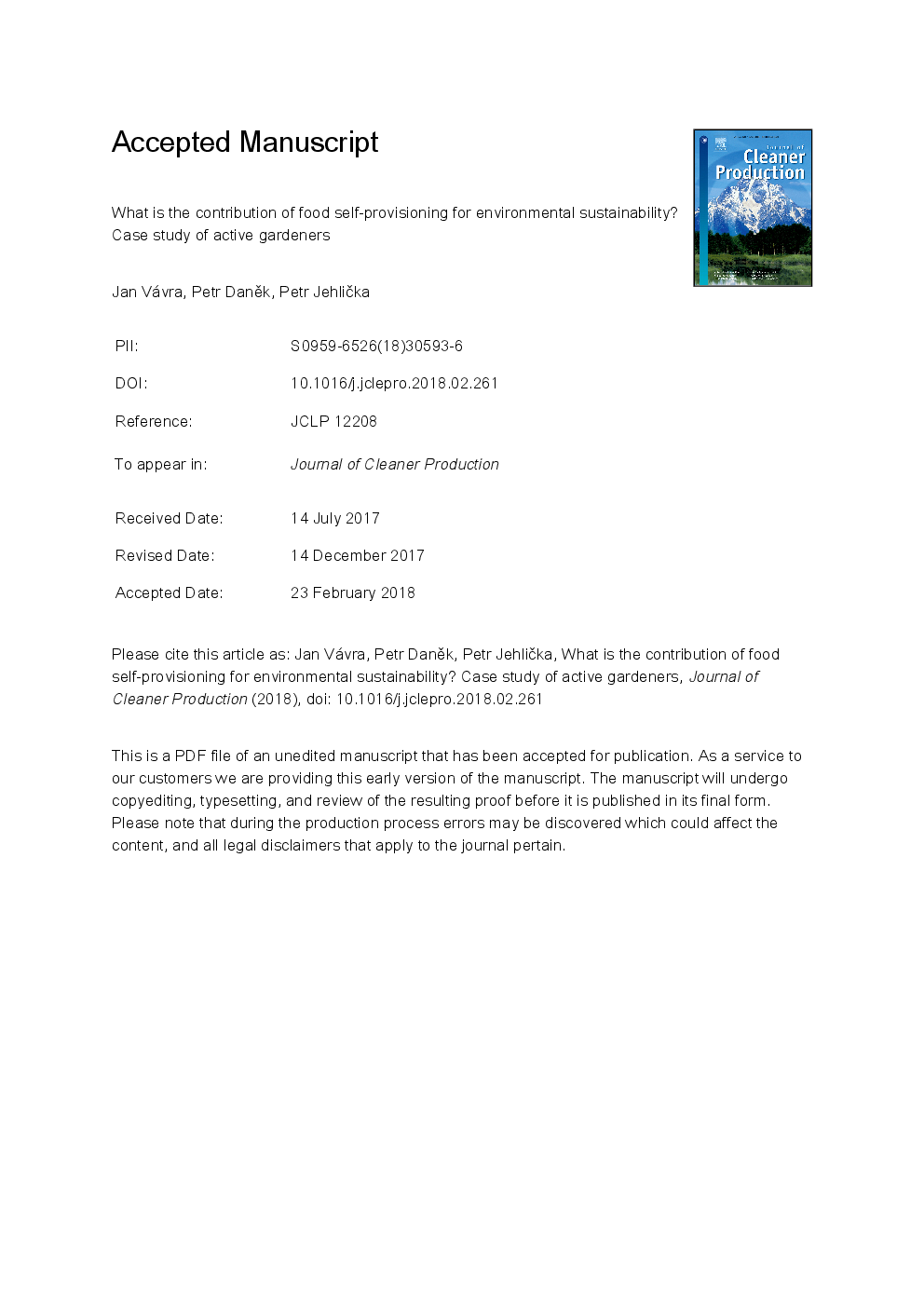ترجمه فارسی عنوان مقاله
سهم غذای خود در مقابل پایداری محیطی چیست؟ مطالعه موردی باغبانان فعال
عنوان انگلیسی
What is the contribution of food self-provisioning towards environmental sustainability? A case study of active gardeners
| کد مقاله | سال انتشار | تعداد صفحات مقاله انگلیسی |
|---|---|---|
| 133081 | 2018 | 29 صفحه PDF |
منبع

Publisher : Elsevier - Science Direct (الزویر - ساینس دایرکت)
Journal : Journal of Cleaner Production, Volume 185, 1 June 2018, Pages 1015-1023
ترجمه کلمات کلیدی
شبکه های غذای جایگزین، رد پای کربن، خود تهیه غذا، باغبانی، انتشار گازهای گلخانه ای، خودمختاری،
کلمات کلیدی انگلیسی
Alternative food networks; Carbon footprint; Food self-provisioning; Gardening; Greenhouse gas emissions; Self-sufficiency;

